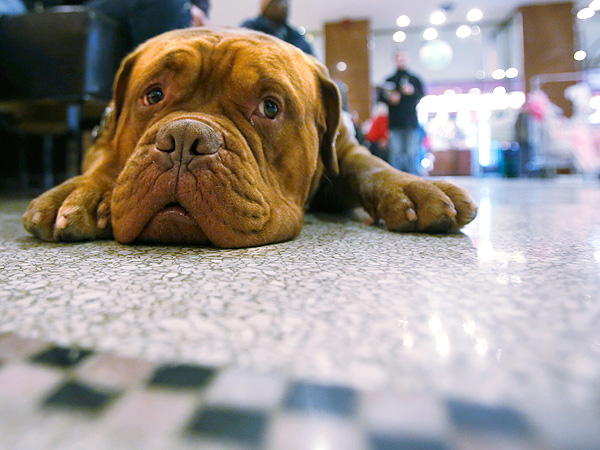DAMASCUS (Reuters) - MiG warplanes roar low overhead to strike rebels fighting to oust President Bashar al-Assad on the fringes of Damascus, while artillery batteries pound the insurgents from hills overlooking a city divided between all-out war and a deceptive calm.
Whole families can be obliterated by air raids that miss their targets. Wealthy Syrians or their children are kidnapped. Some are returned but people tell grim tales of how others are tortured and dumped even when the ransom is paid.
People also tell of prisoners dying under torture or from infected wounds; of looting by the government's feared shabbiha militias or by rebels fighting to throw out the Assad family.
That is one Damascus. In the other, comprising the central districts of a capital said to be the oldest continually inhabited city in the world, the restaurant menus are full, the wine is cheap and the souks are packed with shoppers.
Employees report for work, children go to school and shops are open, seemingly undeterred by the din and thud of war.
The two cities exist a few miles apart - for now.
For Damascus and its outskirts are rapidly descending into civil war and everything that comes with it - lawlessness, looting, kidnapping and revenge killings. Like the rest of the country, the capital and its suburbs are crawling with armed gangs.
"Anybody can come to you pretending he is security and grab you in broad daylight, put you in a car and speed off and nobody dares interfere or rescue you," says Lama Zayyat, 42. "A girl in the 7th grade was kidnapped and her father was asked to pay a big ransom. The same happened to other children," she said.
Nobody really knows who is behind the kidnappings. In one gang, one brother is in charge of abductions while another brother negotiates with the victims. The fear is palpable.
NO SECT HAS BEEN SPARED
The war has not yet reached the heart of the capital, but it is shredding the suburbs. In the past week, government troops backed by air power unleashed fierce barrages on the east of the city in an attempt to flush out rebel groups.
Most of central Damascus is controlled by Assad's forces, who have erected checkpoints to stop bomb attacks. The insurgents have so far failed to take territory in the center.
Just as loyalist forces seem unable to regain control of the country, there looks to be little chance the rebels can storm the center of Damascus and attack the seat of Assad's power.
For most of last week the army rained shells on the eastern and southern neighborhoods of Douma, Jobar, Zamalka and Hajar al-Aswad, using units of the elite Republican Guard based on the imposing Qasioun mountain that looms over the city.
The rebels, trying to break through the government's defense perimeter, were periodically able to overrun roadblocks and some army positions, but at heavy cost.
Jobar and Zamalka are situated near military compounds housing Assad's forces, while Hajar al-Aswad in the south is one of the gateways into the city, close to Assad's home and the headquarters of his republican guard and army.
Since the uprising began two years ago, 70,000 people have been killed, 700,000 have been driven from Syria and millions more are displaced, homeless and hungry. No section of society has been spared, whether Christians, Alawites or Sunnis, but in every community it is the poor who are suffering most.
Electricity is sporadic. Hospitals are understaffed as so many doctors - often targeted on suspicion of treating rebel wounded - have fled. Hotels and businesses barely function.
Outside petrol stations and bakeries, queues are long and supplies often run out, meaning people have to come back the next day. Those who can afford it pay double on a thriving black market.
The scale of the suffering can be seen in the ubiquitous obituary notices on the walls of Damascus streets - some announcing the deaths of whole families killed by shelling.
As if oblivious of these private daily tragedies, the government insists the situation is under control, while the rebels say the Assads' days are numbered.
NOWHERE NEAR OVER
Ordinary Syrians are convinced their ordeal is nowhere near over. While they believe Assad will not be able to reverse the gains of the rebels, they cannot see his enemies prevailing over his superior firepower, and Russian and Iranian support.
"The regime won't be able to crush the revolution and the rebels won't be able to bring down the regime," said leading opposition figure Hassan Abdel-Azim. "The continuation of violence won't lead to the downfall of the regime, it will lead to the seizure of the country by armed gangs, which will pose a grave danger not only to Syria but to our neighbors".
"Right now no one is capable of winning," said a Damascus-based senior Arab envoy. "The crisis will continue if there is no political process. It is deadlock."
Other diplomats in Damascus say the United States and its allies are getting cold feet about arming the rebels, fearing the growing influence of Islamist radicals such the al-Nusra Front linked to al-Qaeda, banned last year by Washington.
Some remarks recur again and again in Damascus conversations: "Maybe he will stay in power, after all", and, above all, "Who is the alternative to Assad?"
"At first I thought it was a matter of months. That's why I came here and stayed to bear witness to the final moments," said Rana Mardam Beik, a Syrian-American writer. "But it looks like it will be a while so I am thinking of going back to the U.S."
Loyalty to Assad is partly fed by fear of the alternative. Facing a Sunni-dominated revolt, Syria's minorities, including Christians and Assad's own Alawites - an offshoot of Shi'ite Islam - fear they will slaughtered or sidelined if the revolution succeeds and Sunni fundamentalists come to power.
MINORITIES' FEAR
Many Christians are already trying to emigrate to countries such as Sweden, diplomats say.
"The minorities have every right to be frightened because no one knows what is the alternative. Is it a liberal, civic, pluralistic and democratic state, or is the alternative an Islamist extremist rule that considers the minorities infidels and heretics?" said Abdel Azim.
The government tells the minorities the only alternative to Assad is Islamism. Loyalist brutality against the Sunni majority is in danger of making this a self-fulfilling prophecy, by sucking in jihadi extremists from Libya to Saudi Arabia.
"I am not with the regime but we are sure that if Bashar goes the first people they will come for are the Alawites, then the Shi'ites and then us Christians. They are fanatics," said George Husheir, 50, an IT engineer.
At the Saint Joseph Church in Bab Touma, the old Christian quarter of Damascus, Christians in their dozens, mostly middle-aged and older couples, gathered for mass on a Friday morning.
"We don't know what the future holds for us and for this country," said the priest in his sermon. "The Christians of Syria need to pray more."
Nabiha, a dentist in her 40s, said: "Bashar is a Muslim president but he is not a fanatic. He gave us everything. Why shouldn't we love him. Look at us here in our church, we pray, we mark our religious rituals freely, we do what we like and nobody interferes with us."
The fear of the Christians extends to the Alawite and minority Shi'ites. "If Bashar goes we definitely have to leave too because the Sufianis (Sunni Salafis) are coming and they are filled with a sectarian revenge against us," said one wealthy middle class Shi'ite.
COSTLY WAR
Alongside sectarian hatreds, class and tribal acrimony is also surfacing. Wealthy Sunnis in the capital are already in a panic about poor Sunni Islamists from rural areas descending on their neighborhoods.
"When they come they will eat us alive", one rich Sunni resident of Damascus said, repeating what a cab driver dropping him in the posh Abou Roummaneh district told him: "Looting these houses will be allowed."
Yet many activists feel protective of the revolution, despite the brutal behavior of some Islamist rebels.
"People talk about chaos and anarchy after Assad, but so what if we have two years of a messy transition? That is better than to endure another 30 years of this rule," said Rana Darwaza, 40, a Sunni academic in Damascus.
Prominent human rights lawyer Anwar al-Bunni said the suffering is a price that had to be paid. "Those on the ground will continue to fight even with their bare hands", he said.
He said there are thousands of prisoners in horrific conditions in Assad's jails. Some suffocate in overcrowded cells while others die under torture or from untreated wounds. "They don't give them medical treatment or pain killers or antibiotics. They leave them to die," he said.
Close watchers of Syria predict that if there is no settlement in a few months the conflict could go on for years. Yet the economy is collapsing, leaving the government to rely on dwindling foreign reserves, private assets and Iranian funds.
There is no tourism, no oil revenue, and 70 percent of businesses have left Syria, said analyst Nabil Samman. "We are heading for destruction, the future is dark", he added.
Added to the religious animosity between the Sunni majority and the Alawite minority who took control when Hafez al-Assad seized power in 1970 are social and economic grievances fuelled by the predatory practices of the elite.
This resentment extends to young middle class Syrians who feel they have lost a way of life and that their country is being used by regional powers for proxy war.
"All the regional point-scoring is taking place in Syria. We have Libyan fighters and Saudis fighting for freedom in Syria, why are they here? Let them go and demand freedom in their own countries?," said banker Hani Hamaui, 29.
Two years into the uprising, Assad is hanging on. Some will always back him and others want him dead. But many just want an end to the fighting. They may have to wait for some time.
Signs daubed on the gates to the city by Assad's troops are a reminder that the battle for Damascus will be costly. "Either Assad, or we will set the country ablaze", they say.
(Editing by Giles Elgood)













